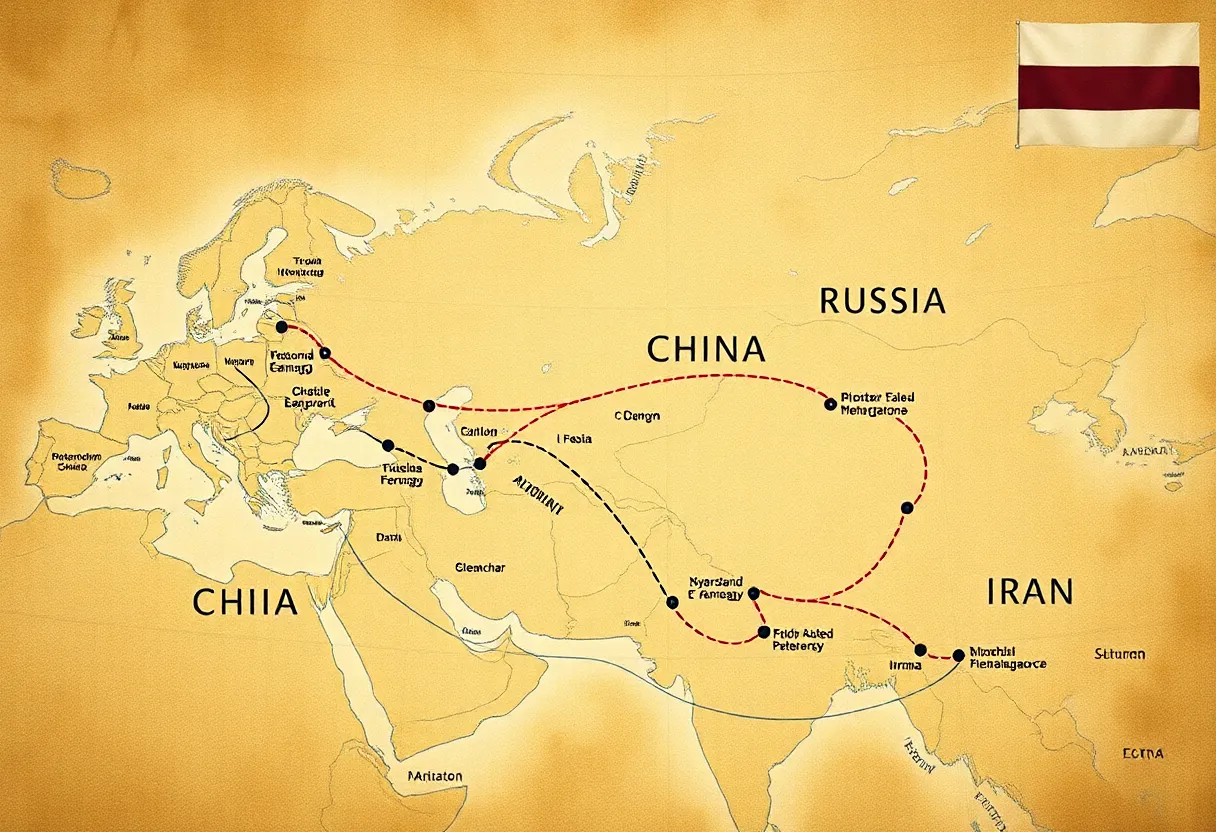News Summary
China has firmly rejected a US demand to stop importing oil from Iran and Russia, emphasizing its commitment to national interests and sovereignty. During recent trade negotiations, US Treasury Secretary Scott Bessent warned of potential 100% tariffs on Chinese goods if oil importation persists. Analysts caution that such tariffs could harm ongoing trade discussions. As geopolitical tensions rise over issues like the Ukraine conflict, China’s continued oil imports are pivotal for its energy security and strategic relationships, particularly with Russia.
China has firmly rejected a demand from the United States to halt its oil imports from Iran and Russia during ongoing trade negotiations aimed at resolving various economic differences. Chinese officials emphasized that their energy supply strategies will remain aligned with national interests and reiterated their commitment to defend sovereignty from external pressures.
The U.S. demand was made during two days of discussions in Stockholm, where U.S. Treasury Secretary Scott Bessent warned that the U.S. could impose a 100% tariff on Chinese goods if the oil imports from these countries continued. Bessent asserted that despite China’s opposition, negotiations have not stalled, highlighting the tenacity of Chinese negotiators.
Market analysts suggest that such a drastic tariff could be counterproductive, as it risks derailing the progress towards an amicable trade deal. Insights from Gabriel Wildau, the managing director at Teneo, indicate skepticism about the U.S. administration’s resolve to implement such a high tariff when considering potential ramifications.
The U.S. aims to restrict oil sales from Russia and Iran primarily to limit funding for military operations linked to ongoing geopolitical tensions, especially in regions like Ukraine. Meanwhile, China‘s response to the U.S. stance demonstrates a robust resistance against any imposition of tariffs.
Tu Xinquan from the China Institute for WTO Studies points out that China’s ongoing oil imports play a significant role not only in its energy security but also in maintaining strategic relationships with key allies such as Russia. Analysts believe China’s decision to continue purchasing oil from Russia is also influenced by the opportunity to secure favorable pricing, benefiting its economy.
Data from the U.S. Energy Information Administration estimates that China receives 80% to 90% of Iran’s oil exports, totaling over 1 million barrels per day, really highlighting the deep economic involvement. China’s oil imports from Russia have also surged, showing an increase of 20% just in April alone, which situates China as responsible for almost half of Russia’s total oil exports.
Furthermore, the geopolitical landscape is being shaped by new legislative movements within the U.S. Recent proposals by U.S. Senator Lindsey Graham have introduced the possibility of tariffs reaching 500% on nations buying oil or resources from Russia. The bipartisan bill has garnered significant backing, with 84 co-sponsors and aims to constrain financial aid to Russia’s military activities.
This proposed legislative effort reflects a growing urgency among U.S. lawmakers to address the implications of foreign purchases of Russian oil and other resources in light of the war in Ukraine. Some officials within the U.S. administration, like White House adviser Stephen Miller, are vocal about the financing role that nations like India and China play through their continued oil purchases from Russia.
As these developments unfold, the ongoing negotiations between China and the U.S. will likely remain tense, particularly as both powers navigate their strategic interests while confronting external pressures. The situation illustrates the complexities of international relations and trade amidst a shifting geopolitical landscape, where energy supply plays a crucial role in the broader economic and political strategy.
Deeper Dive: News & Info About This Topic
- Times of India
- Wikipedia: China–United States relations
- Fox Business
- Google Search: US-China oil import negotiations
- Reuters
- Google Scholar: China Russia oil imports
- Cryptopolitan
- Encyclopedia Britannica: Energy
- Asia Times
- Google News: China oil imports from Russia

Author: STAFF HERE FLORENCE WRITER
The FLORENCE STAFF WRITER represents the experienced team at HEREFlorence.com, your go-to source for actionable local news and information in Florence, Florence County, and beyond. Specializing in "news you can use," we cover essential topics like product reviews for personal and business needs, local business directories, politics, real estate trends, neighborhood insights, and state news affecting the area—with deep expertise drawn from years of dedicated reporting and strong community input, including local press releases and business updates. We deliver top reporting on high-value events such as the Florence Festival of Lights, Pee Dee Pride, and agricultural expos at the Florence Center. Our coverage extends to key organizations like the Florence Regional Chamber of Commerce and the Pee Dee Area Council of Governments, plus leading businesses in healthcare and retail that power the local economy such as McLeod Health and Pee Dee Electric Cooperative. As part of the broader HERE network, including HERECharleston.com, HEREColumbia.com, HEREGreenville.com, and HEREHiltonHead.com, we provide comprehensive, credible insights into South Carolina's dynamic landscape.





